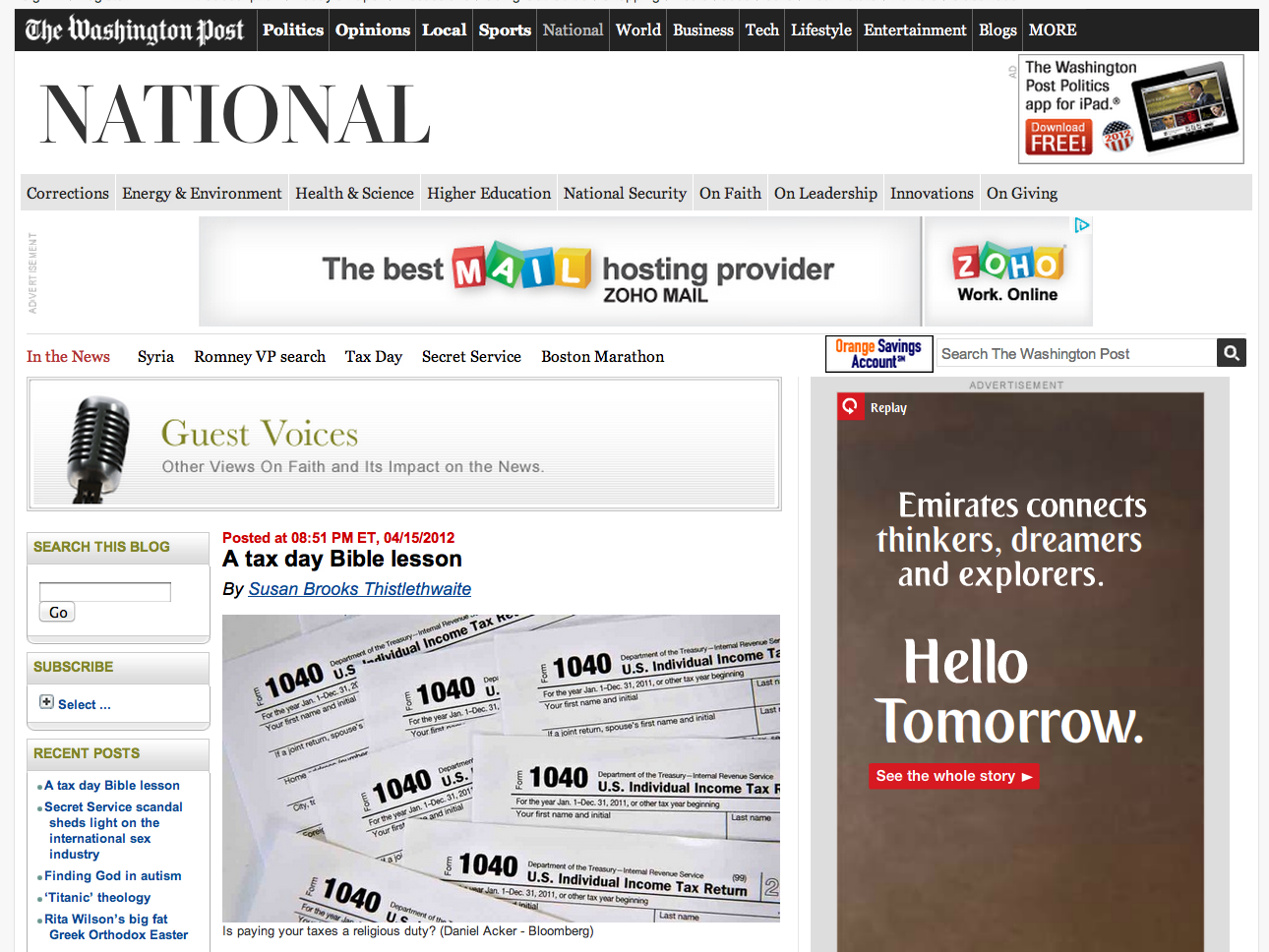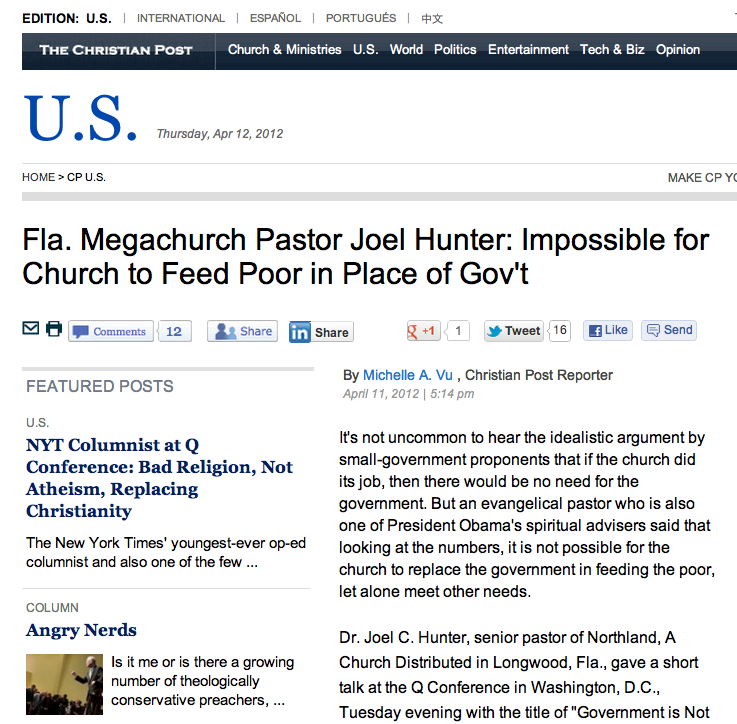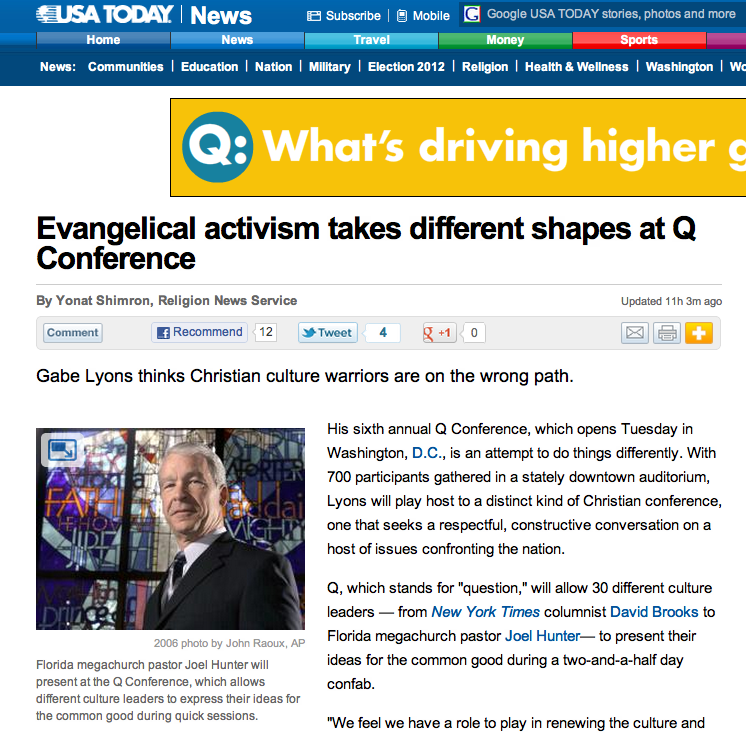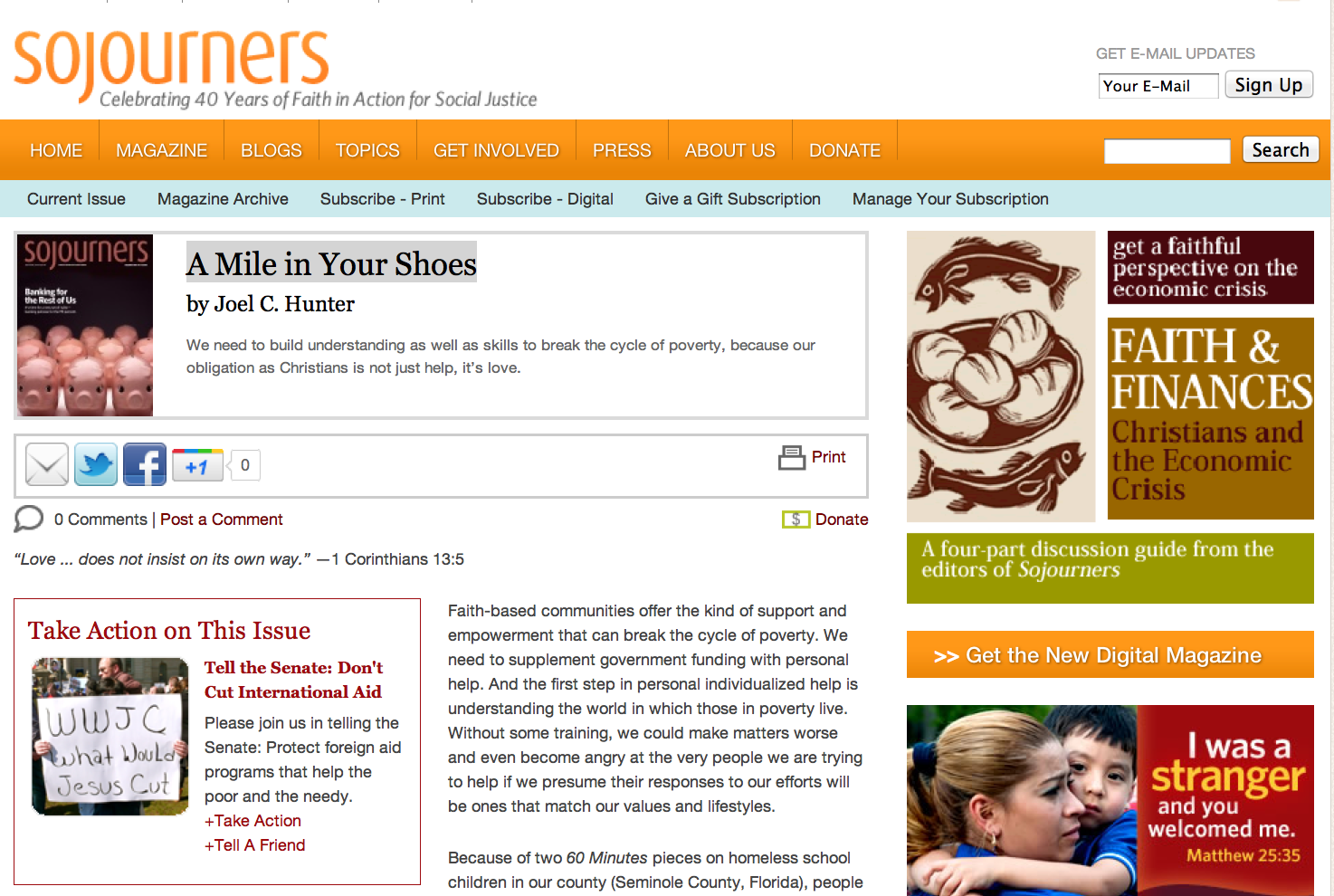It's not uncommon to hear the idealistic argument by small-government proponents that if the church did its job, then there would be no need for the government. But an evangelical pastor who is also one of President Obama's spiritual advisers said that looking at the numbers, it is not possible for the church to replace the government in feeding the poor, let alone meet other needs.
Dr. Joel C. Hunter, senior pastor of Northland, A Church Distributed in Longwood, Fla., gave a short talk at the Q Conference in Washington, D.C., Tuesday evening with the title of "Government is Not the Enemy." Hunter, who was named one of the 50 most powerful people in Orlando by Orlando Magazine in 2011, leads the 15,000-member Northland church, which is well-known for its humanitarian work in the community.
Northland has sent relief teams to neighboring states when they were devastated by natural disasters, been involved in the Homeless Services Network in Central Florida, worked with local schools to feed children from low-income families, and has organized community green cleaning events, among other activities.
Despite all of his church's humanitarian efforts, Hunter believes that the government is needed when it comes to helping the poor.
"Look at the math. It is ridiculous to even, just look at the SNAP – Supplemental Nutrition Assistance Program, the old Food Stamps program – it has been estimated by I think the Center on Budget and Policy Priorities that the average church in America would literally have to double its budget and just take that extra budget and give to hungry people. And that is just one government program. So let's not fool ourselves."
Hunter recalled a conversation with then-presidential candidate Barack Obama during which he said that the faith community is tremendously underutilized. Obama had agreed, but also added that the church cannot do for the common good what the government can. The Florida pastor had also agreed.
"Government can't change lives, but they have resources we don't have. We can change lives with those resources," said Hunter, who served on the first Obama administration Advisory Council on Faith-Based and Neighborhood Partnerships.
"The point is government isn't the enemy, and government isn't the answer. But government is the potential partner that we look for, that we might need."
Earlier in his talk, Hunter discussed what the biblical view of government is. He said the biblical view of government is it is an instrument of God. Pointing to the Bible, the Florida pastor said there are two types of relationships that God's people had with the government: the outsider – a prophet that would rebuke those in authority, such as Jeremiah, Amos, or John the Baptist; and the inside adviser – a person who would speak and guide the unbelieving government, such as Joseph, Nehemiah, Esther, Daniel, and even Paul who used the judicial system of his time to give a witness of what Christ had done for him.
"God has always seen to it that believers had some role in the institution of government," Hunter said.
The Q Conference in Washington, D.C., opened Tuesday and will conclude on Thursday. Some 700 Christian participants are gathering in downtown D.C. at the Andrew W. Mellon Auditorium to hear 30 presentations by church and cultural leaders on a wide range of issues that are aimed at inspiring them to come up with innovative ways to shape the church's future role in culture.
Speakers at the Q DC event include: New York Times columnists David Brooks and Ross Douthat; author and cultural historian Os Guinness; Elevation Burger Franchise Ventures founder Hans Hess; and D.C. pastor and author Mark Batterson.
Michelle A. Vu
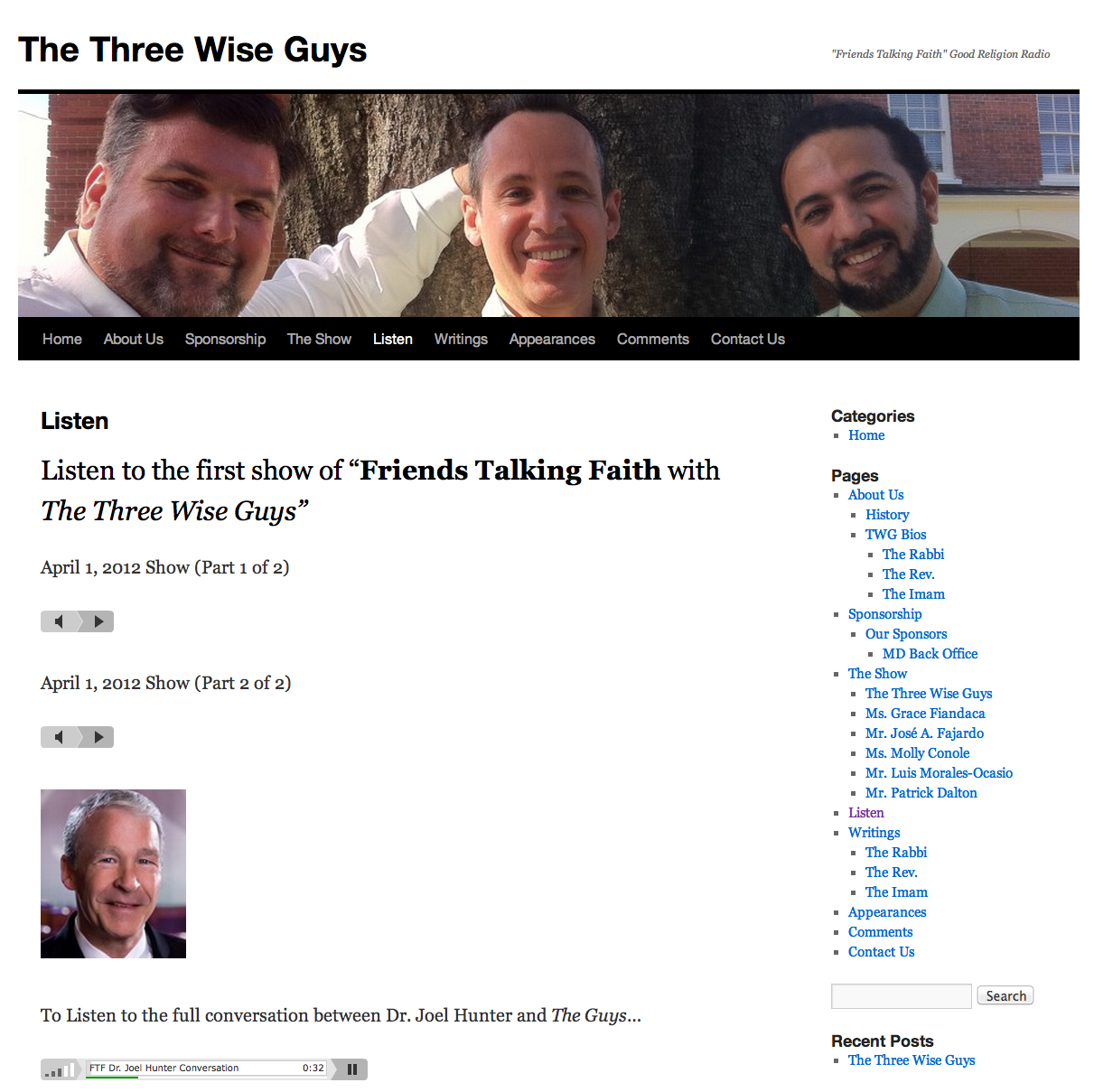 Clergy from different faith traditions sit down as friends to talk together about important things from the perspectives of the different religions they represent. Listen in on the conversation between Dr. Joel Hunter and The Guys at: http://thethreewiseguys.com/listenftf/
Clergy from different faith traditions sit down as friends to talk together about important things from the perspectives of the different religions they represent. Listen in on the conversation between Dr. Joel Hunter and The Guys at: http://thethreewiseguys.com/listenftf/